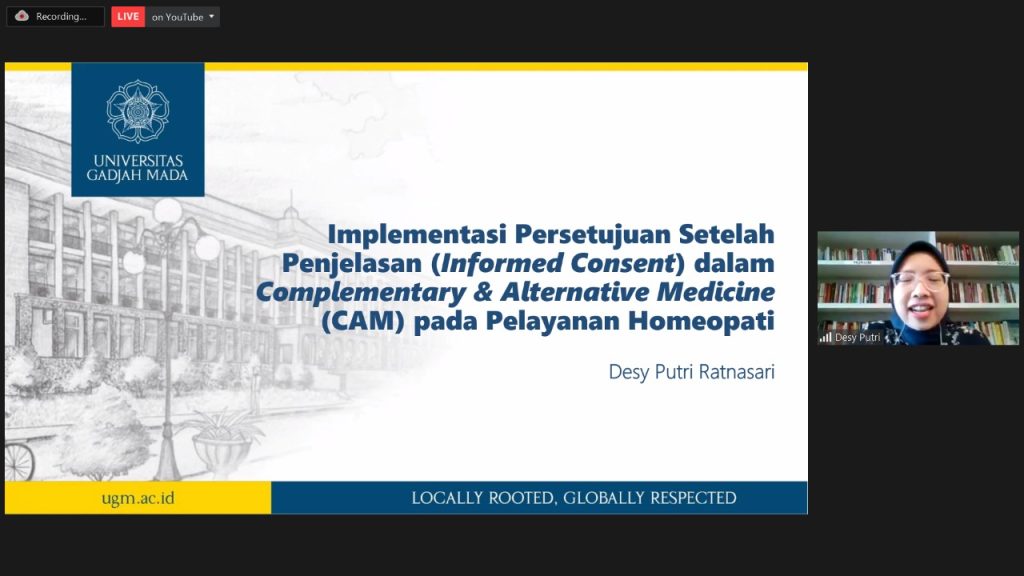Making Ethical Decisions in Obstetrics and Gynecology (Raboan Discussion Forum)
Wednesday (26/01), the Center for Bioethics and Medical Humanities (CBMH FK-KMK UGM) held a routine Raboan Discussion Forum program with the theme Ethical Decision Making in Obstetrics and Gynecology. The theme was presented by the speaker, dr. Azharul Yusri Sp.OG, Chair of Dewan Kehormatan Etik Kedokteran Riau Ikatan Dokter Indonesia. Meanwhile, the moderator is Dr. dr. B. Triagung Ruddy Prabantoro, Sp.OG(K) student at Master of Bioethics Program Universitas Gadjah Mada and Lecturer at Universitas Kristen Widya Mandala.
At the beginning of his presentation, dr. Azharul explained the basis for the emergence of ethical biomedical practices in the medical field. The practice of biomedical ethics has been around for 2500 years. The practice is based on the Hippocratic tradition which is a virtue as a guide for a doctor.
Biomedical ethics is becoming increasingly complex as technology advances in obstetrics and gynecology. This requires doctors to posses skills in making decisions quickly because it will greatly affect the condition of the baby and mother.
“Not to mention that a female patient is very vulnerable, and we also often make decisions during a terminal state,” said dr. Azharul.
Dr. Azharul then explained the ethical framework that can be used as a basis for analyzing ethical problems faced by ob-gyn doctors. The basic principles that can be used are the 4 basic principles of Bioethics by Beauchamp and Childress (2019) which consist of Respect for Autonomy, Nonmaleficence, Beneficence, and Justice.
Four basic principles of Bioethics are indispensable when facing ethical dilemmas. In obstetrics, doctors must consider the conditions of two patients, the baby and the mother, so that conflicts often occur which leads to ethical dilemmas. To deal with this ethical dilemma, doctors must establish a prima facie principle. Prima Facie is a condition when doctors are faced with a difficult choice because it occurs between two basic principles of bioethics.
Dr. Azharul is an example of a prima facie condition, namely providing a complementary diagnosis to pregnant women. Examinations such as radiography, CT scan, and MRIs are very useful for mothers to see their health condition. However, this examination can affect the fetus
“It can interfere with organogenesis which can lead to the induction of malformations, IUGR babies, and others when given a dose of more than 100 mg,” said dr. Azharul.
In order to ob-gyn specialists can train their ethical framework skills, dr. Azharul provides one method that can be used, namely the four-box method. The method is applied by analyzing Medical Indications, Patient References, Quality of Life, Contextual Features. The doctor will identify the facts based on these four things, then the doctor will determine the conflicting ethical principles and explore options. At the end, the doctor will take action by deciding an action and the result.
Download the material here
Watch the full video here

